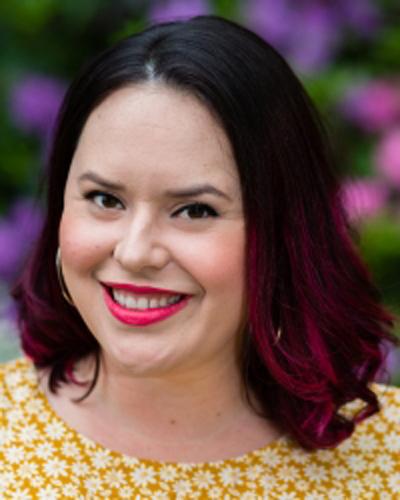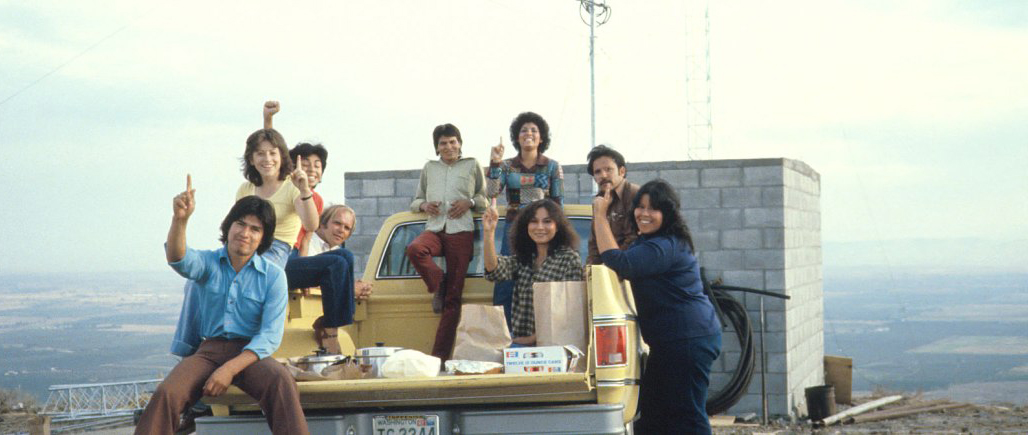
“The Simpson Center was indispensable to my development as a public digital-humanities scholar,” Monica said. “I learned about the different iterations of intellectual communities across spaces in and outside academia."
Monica De La Torre (Gender, Women & Sexuality Studies) has accepted a position as Assistant Professor in Media & Expressive Culture in Arizona State University’s School of Transborder Studies following the completion of her PhD this spring.
Monica is a fellow in the Certificate in Public Scholarship program, incubated at the Simpson Center, and served as a graduate student representative for the program's steering committee. Her portfolio project, an online digital archive on Chicana/o community radio with advisors John Vallier (UW Libraries) and Susan Harewood (Interdisciplinary Arts & Sciences, UW Bothell), has grown into a remarkable digital scholarship project that she will continue at Arizona State.
Monica has also been involved with the Simpson Center as a HASTAC (Humanities, Arts, Science and Technology Alliance and Collaboratory) Scholar and a Digital Research Summer Institute Fellow. She has also contributed to the Women Who Rock oral history and public scholarship project, led in part by Michelle Habell-Pallán (Gender, Women, & Sexuality Studies), her dissertation advisor.
Monica’s dissertation “Feminista Frequencies: Tuning-In to Chicana Radio Activism in the Pacific Northwest, 1975-1990,” took an innovative theoretical and methodological approach to community radio production from a Chicana feminist perspective.

At Arizona State, Monica will continue developing a pedagogy that centers radio and digital-media production as a form of knowledge production. She plans to collect more oral histories with Chicana/o public radio broadcasters while focusing specifically on the soundwork of these community-radio innovators.
“The Simpson Center was indispensable to my development as a public digital-humanities scholar,” Monica said. “I learned about the different iterations of intellectual communities across spaces in and outside academia. In particular, I love teaching radio podcasting and will develop a media lab to train undergraduates in media production at ASU.”
Congratulations, Monica!